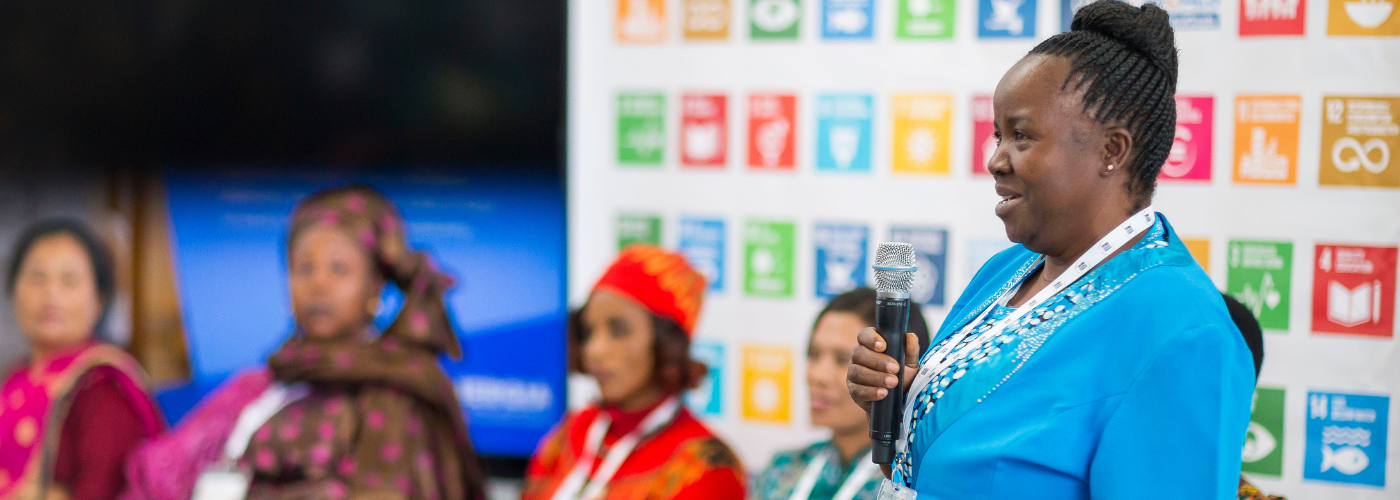Taking stock of 25 years of bringing gender into the energy conversation
Over the past 25 years, ENERGIA has been calling for a gender-equal energy sector. These experiences have now been compiled in a virtual overview. This overview retraces key strategies, achievements and resources that allowed the Network to be a critical player in the advocacy efforts towards the achievement of a just and universal energy access.
ENERGIA was founded by a group of experts in 1996, one year after the Fourth World Conference on Women in Beijing, which pledged to undertake specific actions to achieve gender equality and promote the empowerment of women and girls. This conference however, did not take into account the gender inequalities in energy, the very enabler of development and empowerment. Hence, at the core of ENERGIA’s establishment was the need to increase women’s recognition, participation and representation at all levels in the energy sector, and to close the existing knowledge gap. For 25 years, ENERGIA’s vision to build a gender equal energy sector where women have access to and control over the energy services and technologies they need and prefer motivated our work.
“In 1996, the gender platforms did not take into account energy access. At the same time, the energy sector did not think beyond grid connections. ENERGIA needed to show that women have different energy needs and preferences than men, for their use and development. We wanted to make sure that women were not overlooked and that their voices were hear.”
Joy Clancy, Founder Member ENERGIA
Twenty-five years later, we look back on our journey in a virtual overview, which highlights the key steps that have led to accelerating gender inclusivity. In this overview, we have compiled advocacy approaches, methods and resources that have been an integral part of our strategy to advance gender equality and women’s empowerment. Through six phases, you will explore how ENERGIA has mainstreamed gender in energy policies, programs and projects; promoted gender activities in utilities, institutions and organizations; convened meetings and trainings to advance stakeholders’ advocacy skills; published communication products to influence decision-makers and increase knowledge; supported women’s entrepreneurs in rural communities; and built strong partnerships to join forces and deliver on goals.
From 1996 to 2021, ENERGIA has contributed to shaping the political energy narrative and placing gender on top of the Agenda. Gender equality is now part of the 2030 Agenda (SDG7) and ENERGIA continues to work actively towards reaching this goal.
“Looking back on our work, gave us the opportunity to reflect on how the energy sector has changed over time and reflect on the actions needed to achieve gender equality. We adapted our strategies to these changes, bearing in mind what women’s needs and aspirations are. We are excited to see how women’s participation in the energy sector has increased, along with the recognition of the need for data to close the persistent gaps.”
Sheila Oparaocha, Director of the ENERGIA Network
In the past 25 years we have come a long way. However, despite successes and an increased level of awareness on gender and energy, gender is still not front and center in the energy debate. The international community must double down its efforts to achieve sustainable and affordable energy access for all by 2030. Looking ahead, ENERGIA, together with UNIDO and GWNET initiated the Gender and Energy Compact that is currently endorsed by more than 45 organizations and governments. This coalition brings together governments, private sector, academia, civil society, youth, and international organizations—all under the same overall objective: To promote a just, inclusive, and gender responsive energy transition.











Follow us on: